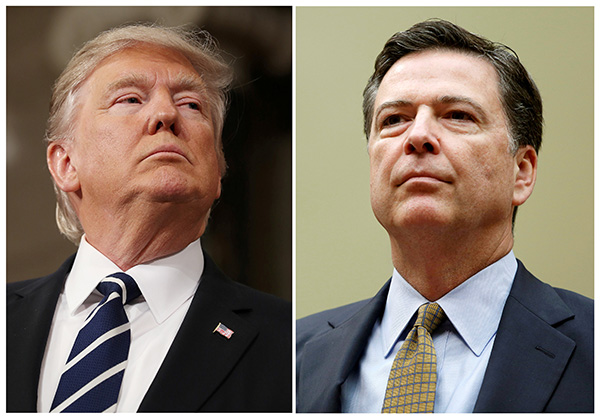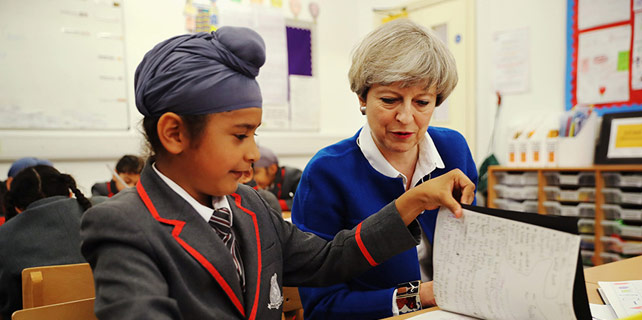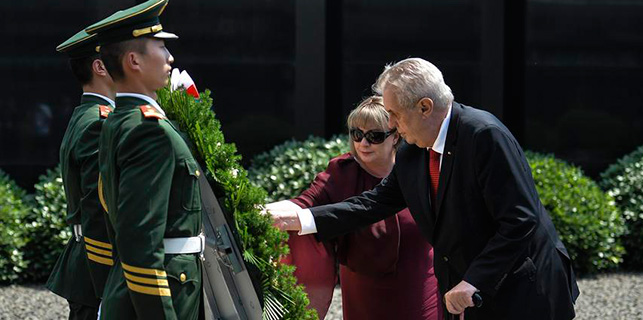Key moments of Trump-Comey clash and what's come after
WASHINGTON — The standoff between President Donald Trump and his former FBI director intensified Tuesday with the news of James Comey's memo saying that Trump asked him to shut down the agency's investigation into ousted national security adviser Michael Flynn.
A person who had seen the memo told The Associated Press what Comey had written. The person was not authorized to discuss the memo by name and spoke on condition of anonymity. The existence of the memo was first reported by The New York Times.
The White House denied the account.
The development comes as the Trump administration faces questions over why and how the president fired Comey last week as the FBI was investigating whether Trump's presidential campaign was connected to Russian meddling in the election.
Trump wrote to Comey that the dismissal was necessary to restore public trust and confidence. Often lauded for his independence, Comey had come under intense scrutiny in past months for his role in the agency's investigation into the email practices of Trump's opponent, Democrat Hillary Clinton, including a pair of letters he sent to Congress on the matter in the final days of the campaign.
A look at key moments in Comey's tenure, the lead-up to Trump's decision to fire him and developments since then.
Sept 4, 2013: Comey is sworn in to office as the seventh director of the FBI. He was nominated for the post by President Barack Obama and confirmed by the Senate.
July 5, 2016: He holds news conference to announce that "no reasonable prosecutor" would bring criminal charges against Hillary Clinton, the Democratic presidential candidate, over her email practices as secretary of state, but criticizes Clinton and her staff for being "extremely careless" in their handling of classified material.
July 5, 2016: Republican presidential candidate Donald Trump calls the FBI's decision not to bring criminal charges against Clinton the greatest example yet that the system is "rigged."

















